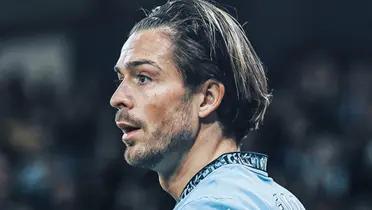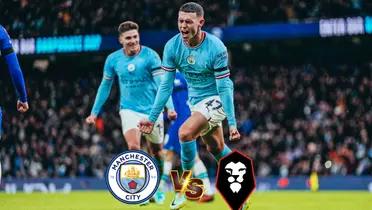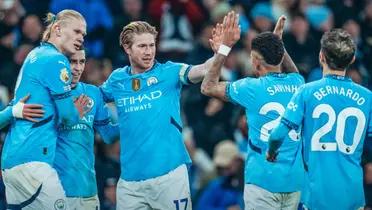Did he scratch his face again? Guardiola's image after the defeat to Aston Villa that raises doubts
The Spanish coach seems to have had another nervous breakdown after life against the villains.

Spanish manager Pep Guardiola gave an interview after the 2-1 loss to Aston Villa at Villa Park with apparent new marks on his face as if he had scratched his face just as he did after the Champions League match against Feyenoord in November.
Guardiola in 2025: A Legacy of Innovation and Success
As we step into 2025, Pep Guardiola's name continues to resonate as one of the most influential and successful managers in the history of football. His journey, which began with promising stints at Barcelona, Bayern Munich, and Manchester City, has now entered its third decade, and the impact of his tactical evolution, leadership, and commitment to the beautiful game is undeniable.
Pep Guardiola's career is marked by his relentless pursuit of excellence, his innovative strategies, and his ability to adapt to changing dynamics. By 2025, his philosophy has evolved even further, yet remains fundamentally rooted in the principles of possession-based football, high pressing, and positional play. These principles, which Guardiola initially refined at Barcelona, have since become the gold standard for modern football, influencing countless managers, clubs, and national teams across the globe. However, as football continues to evolve, so too has Guardiola’s approach, making him a manager who is not only a product of his time but also a key shaper of it.
Manchester City: A Dynasty in the Making
Guardiola's tenure at Manchester City has been transformative. When he arrived in 2016, the club was already one of the richest in the world, but it lacked the cohesive tactical identity that Guardiola has since instilled. Over the years, City has not only become a footballing powerhouse but also a symbol of Guardiola’s strategic genius. By 2025, City has firmly established itself as one of the most dominant teams in both England and Europe. Under Guardiola's leadership, the club has secured multiple Premier League titles, FA Cups, and UEFA Champions League trophies. Guardiola’s influence on City has been so profound that the club’s style of play, ethos, and identity are now synonymous with his name.
One of Guardiola's most impressive achievements is his ability to maintain success over an extended period. In an era where managerial tenures are often short-lived, Guardiola has built a sustainable dynasty. His meticulous attention to detail in every aspect of the game, from the physical fitness of his players to the psychological aspects of preparation, has created a model of consistency. In 2025, Manchester City remains at the pinnacle of European football, regularly challenging for titles both domestically and internationally.
Tactical Evolution: The Guardiola of 2025
While Guardiola's tactical foundations remain unchanged, his approach to the game has continuously adapted to the evolving landscape of football. In 2025, one of the most notable changes is his embrace of more dynamic attacking football, incorporating greater fluidity in positioning, and enhancing his team’s counter-attacking abilities. While his trademark possession game still dominates, Guardiola has recognized the importance of balance. His City side is now more capable of transitioning quickly from defense to attack, using speed and precision to exploit spaces left by opponents.
Additionally, Guardiola’s tactical flexibility has allowed him to manage a diverse range of players effectively. His early career was marked by an emphasis on positional play, but in 2025, he has adjusted his tactics to accommodate a greater variety of styles. His ability to integrate different players into the system, whether through youth development or marquee signings, has been crucial to City’s sustained success. In particular, the evolution of City’s defensive structure, which now emphasizes high pressing but with a more compact defensive line, has made them even harder to break down, a crucial adaptation in an era of rapid, attacking football.
Legacy and Influence: Beyond the Pitch
Pep Guardiola's influence in 2025 extends beyond his immediate impact on Manchester City and the clubs he’s managed. His influence on the broader footballing world is immense, as his principles have shaped the direction of football globally. Many of today’s top managers cite Guardiola as a source of inspiration, from his work at Barcelona to his tenure in Munich and Manchester. His high-pressing, possession-based football has influenced a generation of players and managers, many of whom have embraced his innovative ideas and adapted them to their own contexts.
Moreover, Guardiola's focus on youth development and fostering a collaborative team environment has changed the way clubs approach player development. His commitment to playing young talent, combined with his willingness to adapt his tactical setup to incorporate emerging players, has redefined expectations for modern managers. In 2025, Guardiola’s City team continues to feature an impressive blend of seasoned veterans and rising stars, with youth academy products playing key roles in the senior team.
Looking Ahead: The Future of Guardiola
As Guardiola approaches his mid-fifties, questions inevitably arise about his future in the game. Will he continue to manage at the highest level for another decade, or will he eventually turn his attention to other pursuits? While Guardiola has always been somewhat elusive about his plans, it’s clear that he has no intentions of slowing down anytime soon. His passion for football remains as strong as ever, and his drive to push the boundaries of what is possible continues to shape his approach to management.
In 2025, Guardiola’s next challenge could very well be adapting his philosophy to new challenges. The rise of other top clubs, especially in the European football landscape, means that Guardiola will need to continue evolving. However, if history is any guide, he will rise to the occasion, as he always has.
Pep Guardiola in 2025 is not just a manager; he is a footballing institution, whose ideas and influence have reshaped the sport. His legacy is firmly cemented as one of the greatest managers the game has ever seen, and as football continues to evolve, Guardiola will likely remain at the forefront of that evolution, shaping the future of the game for years to come.
More news

Neymar's future decided: The Brazilian star makes his choice
11/01/2025
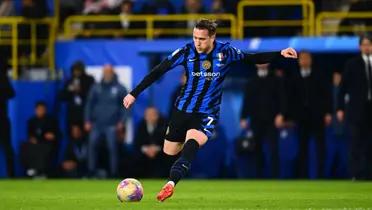
How to watch Venezia vs Inter Milan; Italian Serie A broadcast
11/01/2025

Saturday's Top Transfer News and Rumors
11/01/2025

Live | San Luis vs Tigres: Matchday 1 of the Clausura Liga MX 2025
11/01/2025
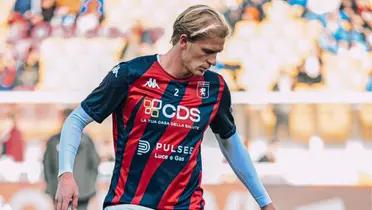
How to watch Genoa vs Parma; Italian Serie A matchday 20 broadcast
11/01/2025

(VIDEO) Zortea shocks San Siro: Cagliari level against Milan
11/01/2025
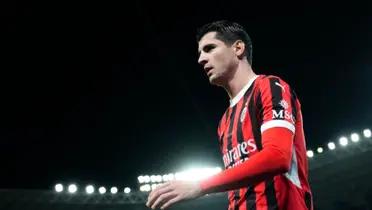
(VIDEO) Alvaro Morata's goal gives Milan the edge over Cagliari
11/01/2025

Plymouth Argyle Appoint Miron Muslic as Head Coach
11/01/2025
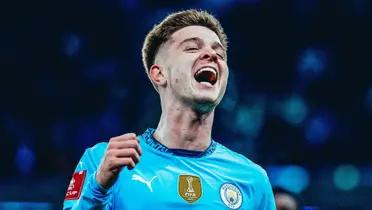
WATCH l McAtee's Farewell? Stunning Hat-trick in Potential Last City Appearance in The FA Cup
11/01/2025

Jamie Carragher Overlooks Match of the Day in Discussion of Top Football Shows
11/01/2025
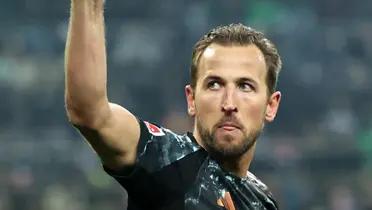
Harry Kane's Bayern Munich stats: Unbelievable numbers for the Bundesliga star
11/01/2025
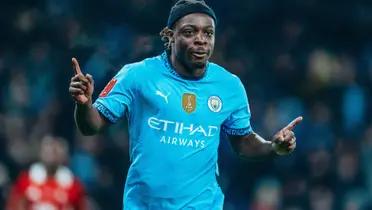
WATCH l Doku Does It Again! Brilliant Brace Powers City Past Salford
11/01/2025
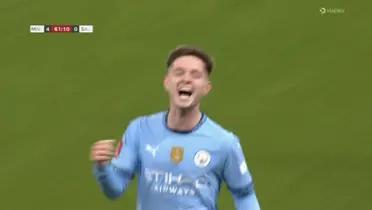
WATCH l McAtee Makes it Five! City Cruise to Dominant FA Cup Victory
11/01/2025

James Rodriguez linked with sensational free transfer to Mexico
11/01/2025

WATCH l Derby Delight: Vlasic's Last-Gasp Equalizer Sends the Crowd Wild
11/01/2025
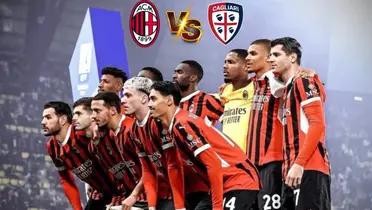
Summary and Goals | AC Milan 1-1 Cagliari: Matchday 20 of the SERIE A minute by minute Full-Time
11/01/2025
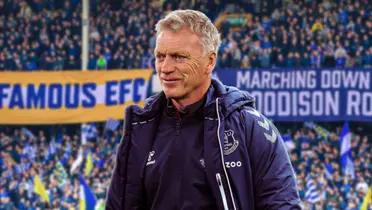
David Moyes set for Everton return as manager under new ownership
11/01/2025

WATCH l Yildiz Lights Up the Derby! Juventus Take Early Lead Against Torino
11/01/2025
